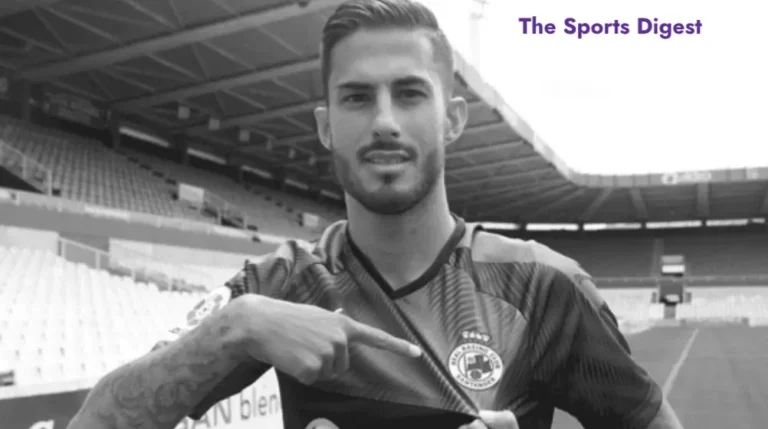Juan Mata: A Rare Breed of Footballer
When Juan Mata stepped onto the stage to accept his second consecutive Chelsea Player of the Year award in 2013, his humble acceptance speech captured the essence of a man who stands apart in modern football. “I’m just trying to play my football and trying to be happy,” he said with characteristic simplicity. In those few words, Juan Mata revealed what makes him special in a sport increasingly dominated by ego and manufactured personas.
His impact on the Premier League was immediate and undeniable. In his first two seasons at Chelsea, the Spanish midfielder racked up 18 goals and 25 assists, adapting seamlessly to the English game despite its stark contrast to the Spanish style he had known. These weren’t just impressive statistics; they were a testament to a rare footballing intelligence that transcends tactical systems and cultural differences.
Table of Contents
A Brilliance That Transcends Styles
What makes Mata’s achievements particularly noteworthy is how his talent bridges the gap between contrasting footballing philosophies. Spanish football, with its emphasis on technical ability and possession, differs markedly from the traditionally more direct and physical English game. Yet Mata’s exceptional vision, touch, and game intelligence allowed him to excel in both environments without compromise.
At Chelsea, despite a dressing room filled with established stars, Mata’s brilliance justified his individual accolades. He became the creative heartbeat of the team, orchestrating attacks with a delicate precision that seemed almost anachronistic in the hurly-burly of Premier League football.
His trophy cabinet speaks volumes about his quality and versatility. A World Cup and European Championship with Spain. A Champions League, Europa League, and FA Cup with Chelsea. Later adding a Europa League, FA Cup, and League Cup with Manchester United, plus a Copa del Rey from his Valencia days. This collection represents not just personal achievement but a player who has consistently contributed to successful teams at the highest levels of the game.
Grounded in Football
To understand Mata’s character is to appreciate his roots in the game. Born into a footballing family—his father Juan Manuel Mata Rodríguez played professionally and later became his agent—the younger Mata’s path through the sport was nurtured from an early age. His development at Real Oviedo and later in Real Madrid’s youth system provided both technical foundations and cultural understanding of what football means in Spain.
Despite his success on the global stage, Juan Mata has never forgotten these roots. When his boyhood club Real Oviedo faced financial difficulties, he was among those who invested to save the club, demonstrating a loyalty that transcends career moves and commercial interests.
This background perhaps explains the apparent absence of ego that defines Mata’s public persona. His love for the game feels authentic and unforced, evident in how he plays and how he conducts himself off the pitch. In an era where footballers often seem motivated primarily by fame and fortune, Mata’s pure enjoyment of football stands out as refreshingly genuine.
A Voice of Authenticity
Perhaps nothing illustrates Mata’s unique place in football culture better than his weekly blog. In a media landscape dominated by carefully crafted statements and PR-managed accounts, Mata’s direct communication with fans offers something different: an authentic glimpse into the mind of a top-level footballer.
The blog’s straightforward style, occasionally in charmingly imperfect English, reinforces its authenticity. There’s no sense of a media team polishing his thoughts—just Juan Mata, sharing his perspective on recent matches, upcoming challenges, and life as a professional footballer.
Most striking is the consistent optimism and trust in his teammates that permeates his writing, even during difficult periods. Where others might descend into blame or frustration, Juan Mata maintains a constructive outlook that speaks volumes about his character and professionalism.
The Mourinho Challenge
One of the most testing periods of Mata’s career came through his relationship with José Mourinho. Their history at Chelsea had been problematic, with Mourinho eventually sanctioning Mata’s sale to Manchester United in 2014—a rare transfer between direct rivals that underscored the breakdown in their professional relationship.
When Mourinho was appointed Manchester United manager in 2016, many questioned whether Mata’s days at Old Trafford were numbered. The 2016 Community Shield match against Leicester City seemed to confirm these fears. Mourinho brought Juan Mata on as a substitute, offering a glimmer of hope for their working relationship, only to substitute him again shortly afterward—an unusual and potentially humiliating move that could have triggered public controversy.
Mata’s response was telling. In his blog following the match, he focused on the positive outcome—winning the trophy—with only the briefest acknowledgment of his personal situation. There was no criticism, no bitterness, just a forward-looking perspective that demonstrated remarkable maturity and restraint.
Against the Tide of Modern Football Culture
This measured approach stands in stark contrast to the reactive culture that often dominates modern football. While some players use social media as a platform for impulsive comments or engage in public disputes, Mata’s communications remain thoughtful and positive.
His approach offers a model for how players can use digital platforms to build genuine connections with supporters rather than creating controversy or cultivating artificial images. The blog’s consistency and sincerity reflect Mata’s character—there’s no disconnect between the public persona and the man himself.
This authenticity extends to his on-field conduct. After scoring Manchester United’s first goal of the 2016/17 Premier League season—following the Community Shield incident with Mourinho—his celebration was characteristically understated. There was no pointed message, no ostentatious display, just quiet satisfaction and genuine appreciation for his teammates’ contributions.
A Diminishing Breed of Role Model
In an era where footballers often make headlines for the wrong reasons, Juan Mata represents a diminishing breed of positive role models in the sport. His conduct on and off the pitch embodies values that transcend football—humility, integrity, professionalism, and genuine passion for his craft.
Perhaps the clearest expression of these values is “Common Goal,” the charity initiative Mata co-founded that encourages footballers to pledge at least 1% of their salaries to a collective fund supporting football-based charities around the world. This project reflects Mata’s understanding of football’s power to drive positive change and his commitment to using his position responsibly.
Yet it would be a mistake to confuse Mata’s humility with a lack of ambition or competitive spirit. Beneath the modest exterior lies a shrewd footballing intelligence and unwavering determination. His professional longevity is no accident but the result of adaptability, continued development, and hunger for success.
As his playing career progresses, Juan Mata continues to fight for his place at the highest level, demonstrating that genuine humility and fierce determination need not be mutually exclusive. His rare combination of talent, character, and perspective suggests a future in football beyond his playing days—whether in coaching, administration, or ambassadorial roles.
In a sporting world often dominated by noise and spectacle, Juan Mata reminds us of football’s capacity to showcase not just athletic excellence but human qualities worthy of admiration. In that sense, he truly is a rare breed of footballer—and one whose influence extends far beyond statistics and trophies.
Have you ever read an article like this?
There are no reviews yet. Be the first one to write one.






